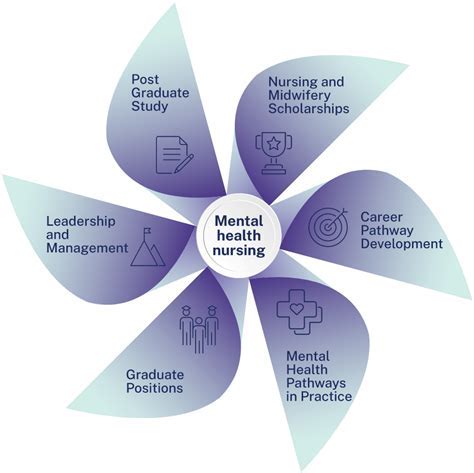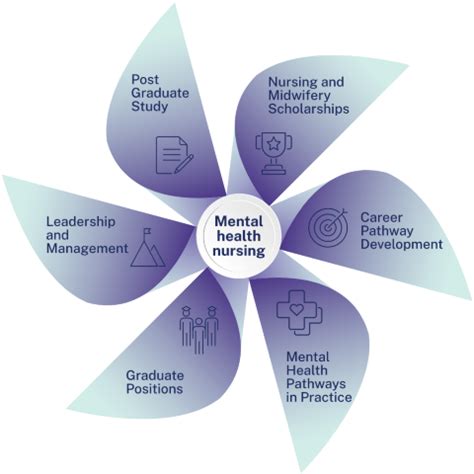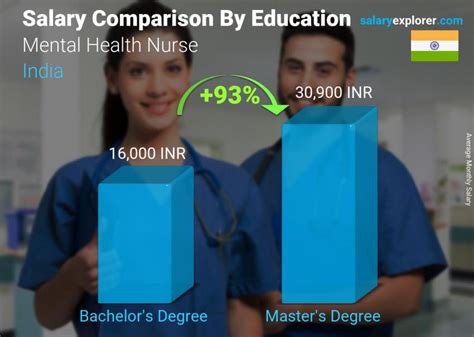Intro
Discover fulfilling Mental Health RN jobs and unlock a rewarding career in nursing. Explore various career options, growth opportunities, and specializations in mental health nursing. Learn about the demand for mental health RNs, required skills, and education to succeed in this field and make a difference in patients lives.
Mental health is a crucial aspect of overall well-being, and the demand for skilled professionals in this field is on the rise. As a registered nurse (RN), you can play a vital role in supporting individuals with mental health conditions, from diagnosis to treatment and recovery. In this article, we will explore the various career options and growth opportunities available to RNs in mental health.

Why Pursue a Career in Mental Health as an RN?
The World Health Organization (WHO) reports that one in four people will experience a mental health disorder each year. This staggering statistic highlights the need for compassionate and skilled professionals like RNs to provide quality care and support. A career in mental health as an RN offers numerous benefits, including:
- Personal fulfillment: Working in mental health allows you to make a meaningful difference in people's lives, helping them navigate challenging times and achieve recovery.
- Job security: The demand for mental health professionals is increasing, ensuring a stable and secure career path.
- Variety: Mental health RNs work with diverse patient populations, from children to adults, and address a range of conditions, from anxiety and depression to psychosis and trauma.
- Opportunities for specialization: You can specialize in specific areas, such as addiction, eating disorders, or forensics, to name a few.
Types of Mental Health RN Jobs
Mental health RNs can work in various settings, including:
- Hospitals and clinics
- Community mental health centers
- Private practices
- Schools and universities
- Correctional facilities
Some specific job roles for mental health RNs include:
- Psychiatric nurse: Providing direct patient care, administering medications, and developing treatment plans.
- Mental health nurse practitioner: Conducting assessments, diagnosing conditions, and prescribing medications.
- Clinical nurse specialist: Focusing on specific populations, such as children or older adults, and developing specialized treatment plans.
- Nurse educator: Teaching mental health courses, developing curricula, and mentoring students.
Career Advancement Opportunities

As a mental health RN, you can pursue various career advancement opportunities, including:
- Specializing in a specific area, such as addiction or forensics
- Moving into leadership roles, such as nurse manager or director of nursing
- Pursuing advanced degrees, such as a master's or doctoral degree
- Becoming a certified nurse educator or researcher
Education and Certification
To become a mental health RN, you typically need:
- An associate's or bachelor's degree in nursing
- A valid RN license
- Basic life support (BLS) certification
- Certification in mental health nursing, such as the Certified Psychiatric-Mental Health Nurse (CPMH-RN) or the Certified Nurse Practitioner (CNP)
Salary and Benefits

Mental health RNs typically earn competitive salaries, ranging from $60,000 to over $100,000 depending on experience, location, and setting. Benefits may include:
- Comprehensive health insurance
- Retirement plans
- Paid time off
- Continuing education opportunities
Challenges and Rewards
Working as a mental health RN can be challenging, as you may encounter:
- High-stress situations
- Emotional demands
- Complex patient needs
However, the rewards far outweigh the challenges:
- Making a meaningful difference in people's lives
- Witnessing patient recovery and growth
- Developing strong relationships with patients and colleagues
Conclusion
A career in mental health as an RN offers a fulfilling and challenging career path, with numerous opportunities for growth and specialization. As the demand for mental health professionals continues to rise, now is an excellent time to pursue a career in this field. By understanding the various career options, education requirements, and benefits, you can make an informed decision about your future as a mental health RN.
What is the average salary for a mental health RN?
+The average salary for a mental health RN ranges from $60,000 to over $100,000, depending on experience, location, and setting.
What education do I need to become a mental health RN?
+To become a mental health RN, you typically need an associate's or bachelor's degree in nursing, a valid RN license, and certification in mental health nursing.
What are the benefits of working as a mental health RN?
+Benefits of working as a mental health RN include making a meaningful difference in people's lives, witnessing patient recovery and growth, and developing strong relationships with patients and colleagues.
